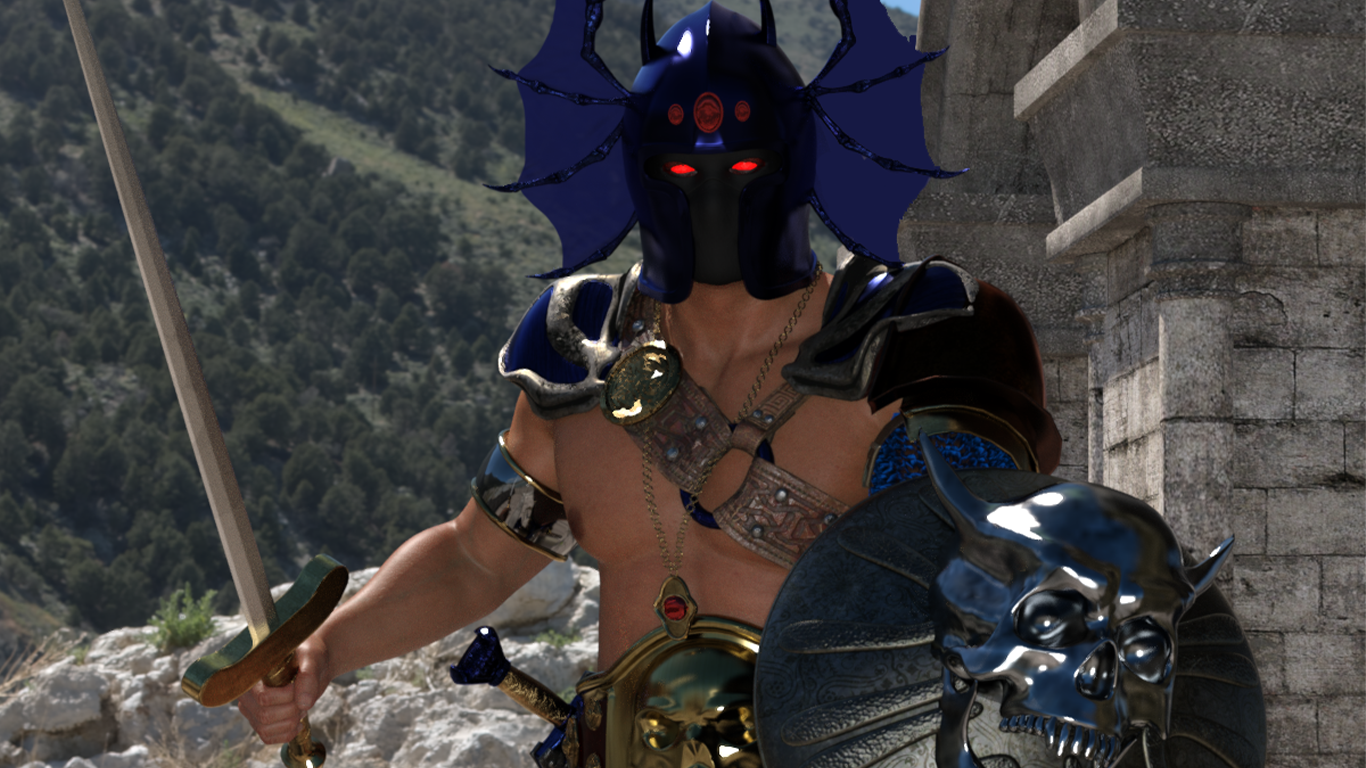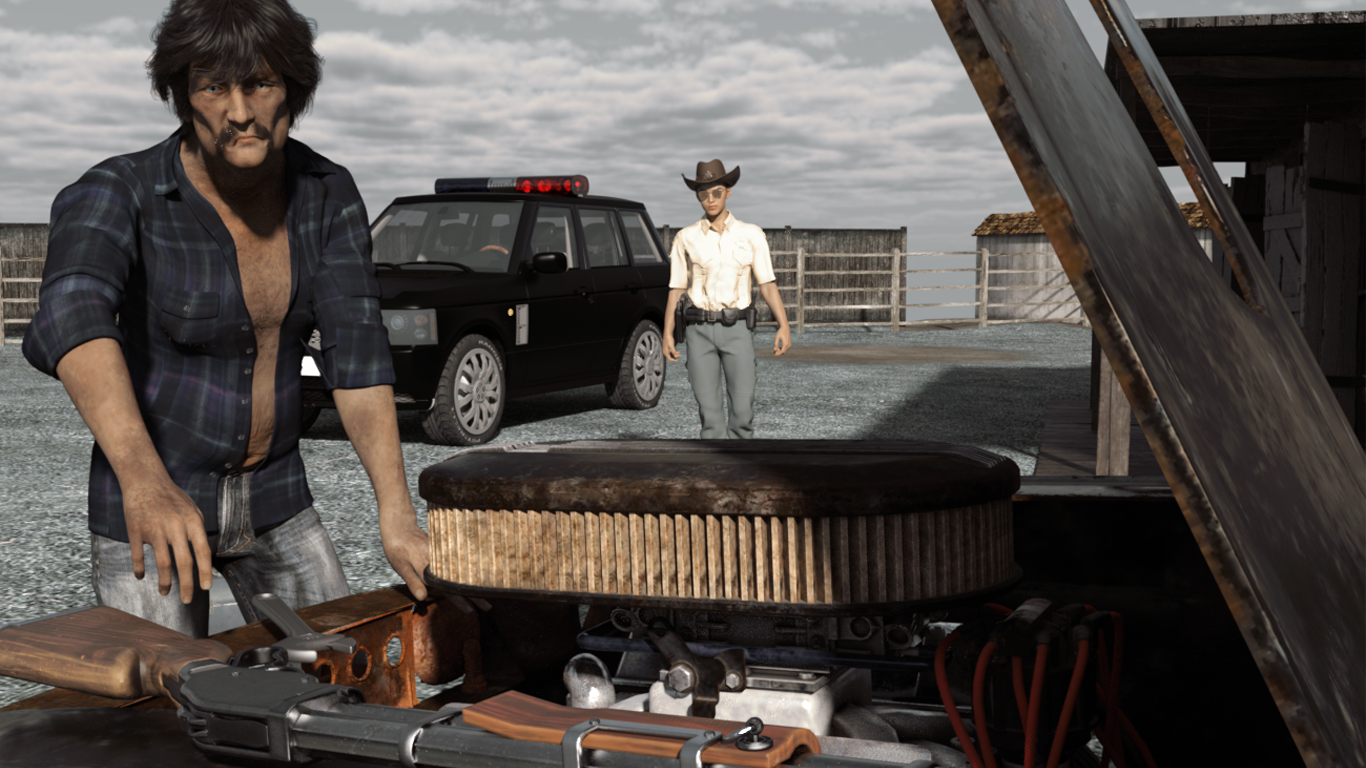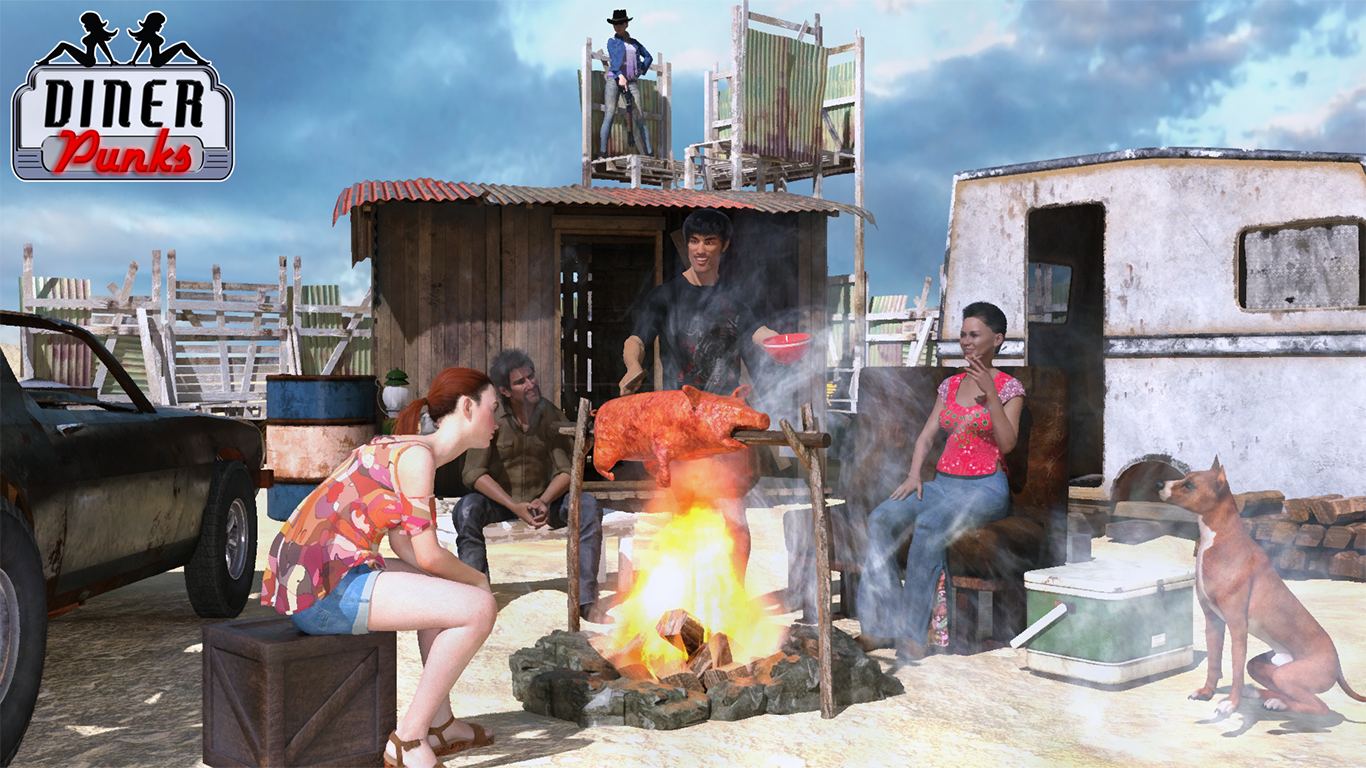We may earn money or products from the companies mentioned in this post.
REVERB GAMERS 2012, #16: Who was the most memorable foe you’ve ever come up against in a game? How did you beat him/her/it? Or did you? (Courtesy of Atlas Games. Visit them at www.atlas-games.com)
I’ve played in a lot of games, so the question as asked is a tough one. With a little change to the wording, though, it becomes a lot easier, so I’m going to take the easy way out. Instead of writing about the best bad guy one of my characters has gone up against, I’m going to talk about the best villain I’ve ever seen in a game. It was actually a game I ran, but I can’t take any credit for the bad guy.
When I was in college, my friends and I played two huge, multi-year campaigns. The first was L8on Connor’s “Ficton” game, which consisted of a core super-hero story with a lot of side stories/campaigns about different super hero teams, private detectives, monster hunters, occult investigators, government agents, and even, briefly, an intergalactic rock band. The other game was a fantasy game I ran called “Kreos” that started off as a one-shot D&D game and ended up turning into several campaigns. When one group of characters would retire from adventuring (usually to take positions of power in the world), we’d start a new game, usually in another part of the world, with new characters (though, of course, the old characters still showed up in the game when it made sense (and probably sometimes when it didn’t)).
Kreos, like most fantasy worlds, was a lot like medieval Europe with the serial numbers filed off, so one of the major religions was basically Christianity. The first campaign included a priest and paladin of this god who were both pretty New Testament love thy neighbor types. In the second or third campaign, Skaught Bowden decided he wanted to play a holy warrior of the same deity who was a little more Old Testament and Inquisitiony; his basic concept was “Lawful Evil Paladin,” though I don’t actually remember if we were still using the heavily-modified D&D rules (from which we’d long since dumped alignment as anything more than a descriptor) or if we’d switched to my homebrew system.
Skaught did an almost disturbingly good job of playing the role of Achard, a sadistic sociopath who truly believed he was doing God’s will, so it wasn’t a big surprise when he and the rest of the group parted ways. Skaught brought in a new character, but Achard continued to carry out God’s work and the group would occasionally encounter some atrocity that he had committed. By the end of the story arc he had become a full-blown nemesis.
After that one, we did two story arcs with a completely different group of characters, the second of which took them to the far ends of the world (which conveniently gave me an excuse to avoid checking in on the old characters on the continent). This group of course returned to find Achard ruling (with extreme prejudice) over a kingdom that a lot of characters from all the different campaigns had ties to. As we started moving toward the big showdown, we filled in some background, tying some characters more firmly to the storyline, and players started focusing on one or two of their (in some cases several) characters from the history of the game who had the most at stake. Skaught and I worked together to come up with Achard’s plans and we occasionally threw in cut scenes where he played the villain role to the hilt and Achard did terrible things to the friends and loved ones of the other players.
The final session had around a dozen players with characters from every previous campaign and was an all out war. Of course, by that point the massive clash of armies was just background to the main goal from most of the characters’ perspective: make Achard pay. By the time the final standoff between Achard and Nicholas (the paladin from the first game) came around, I only had to handle the side work the other characters were doing. Jason (Nic’s player) focused everyone’s hate of Achard perfectly and Skaught said all the right things to make them hate him even more, so it was really just a matter of letting them slug it out. I don’t even remember doing any dice fudging to make sure the good guys won, but I’m not sure if that was because the rolls played out perfectly or of Skaught just made sure Achard lost the battle at just the right time (I kind of suspect the latter). It was one of the best game sessions I’ve ever been involved in, and in the end Achard was defeated with grim determination, a healthy dose of drama, and a big fucking axe.
To tie back to a previous question, one of the best things about the Achard storyline was that even though nearly every character had a palpable hatred of Ahard and there was a lot of tension in the air during the final session, none of those feelings transferred over to Skaught. Everyone knew that by playing the role of total bastard, he was making the game more enjoyable. When Achard died, Skaught’s other characters joined in the celebration when the game was over, we all congratulated Skaught on giving life to one of the greatest villains we’d ever seen.
We started another campaign after that, but it fizzled out before it really went anywhere. Part of the problem was that a lot of the core players had moved out of town, but I think a bigger reason was that there was no hope of ever topping the war against Achard. We had told the best story we could in that world. The attempted follow-up campaign is what taught me that it’s better to end a game on a high note than to let it jump the shark.





